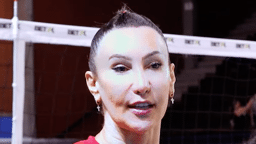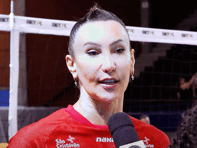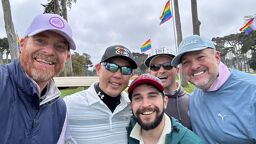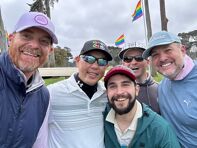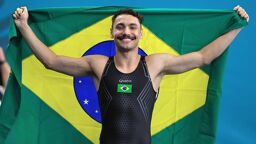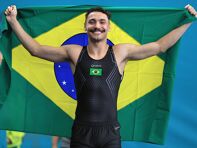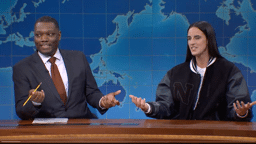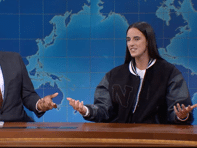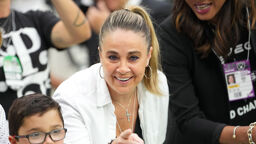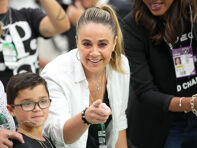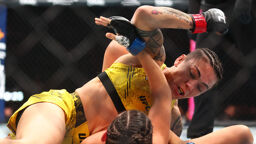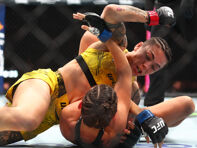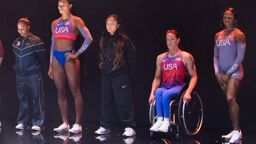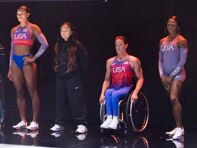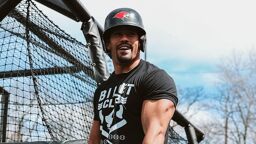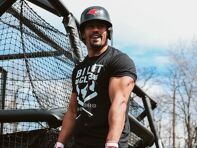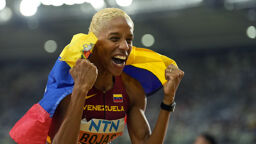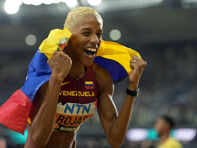(This story was published in 2007).
Sean Smith was the All-American boy. He was 6-foot-something, good-looking, grew up in Oklahoma, was a standout athlete, and even had a quintessentially American name. He had big hopes and dreams of standing atop a podium in Athens or Sydney as someone draped a gold medallion around his neck, the Star-Spangled Banner playing in the background.
In high school, Smith’s dreams of the Olympic Games was not some far-fetched fantasy; he was on his way. At the age of 17 he made the Junior Nationals team and competed with them in Barcelona. He qualified for the Olympic trials and participated in them for the first time in 2000. Going in, he felt he should have finished in the top eight; instead, he finished 18th, adding five seconds to his personal best in the mile. Disappointed with his performance, he headed off to the University of Arizona.
Coming from a club team in Oklahoma, Smith had some trouble transitioning to the standards and rigors of big-time NCAA Div. 1 athletics. He couldn’t find his groove at Arizona and transferred to Rutgers after two disappointing years in the desert.
“Some of it was me not wanting to let go of older training styles,” Smith said in an interview with Outsports. “My body was changing, I wasn’t 6-1, 145 pounds anymore. I was more muscular. But I wanted to train the way I did in high school because it was more comfortable, but that wasn’t working.”
After redshirting for a year due to his transfer, he got another crack at the Olympic trials in 2004, but he injured himself playing water polo before the meet and swam badly at the trials, missing his second shot at the Olympics. What followed was, now increasingly predictably, a disappointing junior year at Rutgers.
“I thought everything was going to be better at Rutgers,” Smith remembered, “and I was going to be an All-American, and all the things that I had had goals to do, and I ended up not swimming well that first year.”
He entered his senior year with low expectations and more injuries. For some of the year, he couldn’t use his arms to swim and was relegated to running and biking on land and kicking in the water. But he found his way at the end of his senior year, winning two events and set conference records at the Big East championships.
“I think everyone was pretty surprised,” Smith said. “I was surprised.”
He qualified for the NCAA championships but fell short there as he had in two Olympic trials before.
“That’s when I was really depressed and having a horrible time dealing with being gay and dealing with a guy I was interested in, and I just couldn’t handle it,” Smith said. “I didn’t really sleep while I was at the meet.”
He had been dating a teammate for much of the year. In the first month of school of his senior year, the teammate had expressed an interest in Smith, and the two embarked on an off-and-on relationship that sometimes seemed to have as much turmoil as affection.
“We ended up hanging out a lot and got along really well, but I was always so paranoid of anyone finding out about anything because I was the captain of the team and I didn’t want anyone to not respect me,” Smith said. “I didn’t want anyone to know. So I wouldn’t talk to him in social settings, I wouldn’t look at him at practice. It was a very destructive relationship.”
His attraction to men was something he had been working through for a couple years. He had his first sexual encounter with another man when he was home for Christmas one year, spending time with one of his teammates from high school who was a top-notch swimmer at the University of Minnesota. The two ended up coming out and being intimate together. Still, he had been able for years to convince himself that he probably wasn’t like other straight guys, but he definitely wasn’t gay.
“I didn’t want to deal with it,” Smith said. “I didn’t want to like guys. I didn’t want the persecution and all the bad stuff that comes with it. And I didn’t understand it. I thought that gay equaled being a huge queen and I’d become effeminate. I was scared, I didn’t want to be that. It’s not bad, but it’s something I didn’t identify myself as.”
What opened his eyes was an upper-level psychology course at Rutgers, taught by Assistant Dean for Student Services Mark Schuster, about sexuality and sports. Smith says the class dealt with gender, sexuality, and the difference between sexuality and gender. He particularly remembers that a lot of it addressed the role that sexuality and gender, and society’s norms of those things, influence all of our thinking in day-to-day life and how they’re amplified in sports culture.
“I learned that I didn’t have to fit into a role,” Smith said of the class, “that I could completely still be an athlete and be whatever gradient of gay that I felt.”
The class didn’t send him diving out of the closet, but it started to make him feel more comfortable with who he was. His senior year, as team captain, he came out to only a graduated diver. He didn’t have to come out to anyone else on the team; despite his best efforts, the teammate he was dating was doing plenty of talking.
Smith was named an assistant coach of the Rutgers men’s team the year after he graduated. While he had never discussed his sexuality with the head coach, he knew it was a conversation he had to have before he accepted the job.
“I don’t know how I brought it up,” Smith remembered, “but it was at the end of the year as I was feeling more comfortable about things. And I said, ‘I know that you know about me.’ And he said, ‘you know Sean, I don’t act like I know about those things because I don’t understand it all, but all I know is that you’re an amazing person, and I’ve never heard anyone say bad things about you. I’ve heard so many positive things from your teammates as I’ve pulled people in to ask them if I should hire you for this that, even if I did think it was bad, I wouldn’t let it stop me from hiring you.'”
For the 2005-‘06 season, he served as assistant coach for the team. He was openly gay with all of the athletes, though he’s not sure how quickly the incoming freshman found out. He said earlier fears of the athletes not respecting him or his instruction faded as a coach; and he never heard any anti-gay teasing.
“I think they knew I’d kick their ass if they did,” Smith said.
Smith decided not to coach the following season. It had been over 15 years since he pursued any vocation or interest out of the water, and he decided it was time. That decision looks to have been a good one; the 2006-‘07 season, at this moment, looks to have been the last forRutgers men’s swimming as the program has been cut along with five other Rutgers athletic programs. According to Rutgers athletic director Robert E. Mulcahy III, the decision was made to comply with the guidelines of Title IX. The federal law for years has been widely used to dismantle men’s collegiate athletic programs.
Smith said he has seen years of his hard work be dismantled by the school administration in one year.
“Rather than providing more opportunities for women, I think [Title IX] is more often used as a scapegoat for athletic departments to be able to cut non-revenue men’s teams,” Smith said. “It will be the death of men’s Olympic sports on the collegiate level if its application is not changed drastically.”
Of the six programs cut by Rutgers only one, women’s fencing, was for female athletes.
Now 24, Smith bartends Friday nights at the Den Nightclub in Somerset, N. J., to make new friends and because he says it’s like a supportive gay family. Smith still lives very near Rutgers, though he says he’s ready to make the big leap to New York City. He is, after several years of internal torment, finally living life as a healthy gay man.
“It definitely makes me wonder what would have happened with my life if I had been able to accept it earlier,” Smith said.
Last summer, Smith swam (left) and competed in the triathlon at the Outgames. He said swimming against other top out athletes was a humbling experience. While he performed well for someone who hadn’t swum much in the previous year, winning gold in some events for his age group, he didn’t expect former Olympic gold medallists Mark Tewksbury and Dan Veatch to be in such good shape.
“I think a lot of it was it was the first time I really felt like I was gay and an athlete,” Smith says. “Every other time I felt like I had to separate the two identities. It was a good experience to meet people who were similar to me.”











